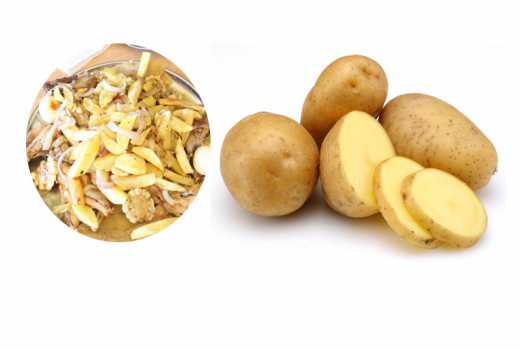
Potatoes make chips, our commonest fried fast food. But few communities outside Central Kenya understand the deep-rooted love affair between the Kikuyu and waru.
Potatoes feature in almost all Kikuyu dishes: mukimo, githeri, karanga, rice and even gunja gutu (bend the ear), a type of ugali made by mixing boiled potatoes and maize meal to create this paste of starch best eaten without sukuma wiki.
How now?
Well, The Nairobian spoke to those in the know from this community whose granary of wisdom, revealed that the Kikuyu’s affinity for waru is cultural, agricultural, customary, culinary and commercial.
It is also an inter-generational heritage crop grown all over Mt Kenya region, where favourable climatic conditions ensures its availability throughout the year.
Waru takes three months to be grow and be ready for harvesting.
Mzee Peter Ndungu Kimani, 78, explains that the mzungus introduced potatoes in Central highlands where many Kikuyus were farmhands, and growing warus, with an easy transition, led to turning them into a trademark component of their cuisine.
Mzee Kimani adds that the Kikuyu’s proximity to the white settlers saw them associate potatoes with culinary sophistication.
“Most of the Kikuyus, having worked for the white settlers, saw that the crop was easier to grow and easy to cook compared to cassava and yams which took many hours,” explains Mzee Kimani.
“The ease of cooking and availability led to the adoption of waru as a traditional food in Central Kenya.”
This went down from one generation to the next and “the first meal a child was introduced to after weaning was waru, mixed with mashed with plantains (matoke). That’s why most of our girls are light-skinned like the waru they eat and our men have small bodies, but are very strong and intelligent.”
Mzee Kimani further explains that waru “is a favourite dish because everywhere you go be it at home or the restaurants in Central region, a complete meal must have waru.”
He adds: “In the olden days when we were growing up, my mother would boil waru and mix it with maize flour to make a special meal called nguja gutu for my father. That dish is no longer as common. The belief at the time was that nguja gutu would give men stamina to make more babies. This was important since our fathers had many wives.”
Besides Central Kenya, waru is popular in other parts of the country where French fries (chips) are sold. Intermarriages have also seen it gain currency in other communities where waru was initially tasted with passing curiosity.
He adds: “During droughts waru becomes the food of choice because it grows faster than other crops.”
Ruth Wanjiru says that preparing food with waru makes the soup thick, besides “adding taste to food. That’s why you will find a stew without waru is considered tasteless ata ikiwa na nyama kiasi gani. In most weddings, if the food doesn’t have waru, be sure that there will be leftovers. I cannot eat food without waru because I will not feel satisfied at all, so I will always find a way to mix it with rice, githeri or even serve it as stew when I cook ugali or chapo”, says the mother of one.
Richard Chege, an official from Coffee Grower’s Cooperative Union says, “Kikuyus are funny. When you visit their farms, you will find coffee farmers growing coffee for commercial purposes and waru for subsistence on the same piece of land. This explains why it’s our ‘brown gold’. Their love of waru is so deep-rooted, they will always find a way to plant it even if there isn’t enough space on the farms.”
 The Standard Group Plc is a multi-media organization with investments in media
platforms spanning newspaper print
operations, television, radio broadcasting, digital and online services. The
Standard Group is recognized as a
leading multi-media house in Kenya with a key influence in matters of national and
international interest.
The Standard Group Plc is a multi-media organization with investments in media
platforms spanning newspaper print
operations, television, radio broadcasting, digital and online services. The
Standard Group is recognized as a
leading multi-media house in Kenya with a key influence in matters of national and
international interest.
